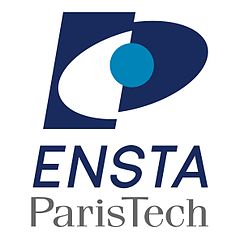Flowers Laboratory
FLOWing Epigenetic Robots and Systems
Software
Team Software
Github repository of the Flowers team, including code of most papers we produce (most of them are open-source under MIT Licence): https://github.com/flowersteam
Other links:
- rl-difference-testing: Simple tools for statistical analyses in RL experiments, https://github.com/flowersteam/rl-difference-testing
- KidLearn – Multi-Armed Bandits for Intelligent Tutoring Systems, https://github.com/flowersteam/kidlearn
KidLearn is a software which adaptively personalize sequences of learning activities to the particularities of each individual student. It aims at proposing to the student the right activity at the right time, maximizing concurrently his learning progress and its motivation.
License: dual-license model: GNU Affero GPL License v3 (AGPL3) and Commercial.
- TeachMyAgent: a Benchmark for Automatic Curriculum Learning in Deep RL, https://github.com/flowersteam/TeachMyAgent
TeachMyAgent is a testbed platform for Automatic Curriculum Learning methods. We leverage Box2D procedurally generated environments to assess the performance of teacher algorithms in continuous task spaces.
- TeachDeepRL: Teacher algorithms for curriculum learning of Deep RL in continuously parameterized environments, https://github.com/flowersteam/teachDeepRL
This github repository provides implementations for the following teacher algorithms:
– Absolute Learning Progress-Gaussian Mixture Model (ALP-GMM), our proposed teacher algorithm
– Robust Intelligent Adaptive Curiosity (RIAC), from Baranes and Oudeyer, R-IAC: robust intrinsically motivated exploration and active learning.
– Covar-GMM, from Moulin-Frier et al., Self-organization of early vocal development in infants and machines: The role of intrinsic motivation.
- IMAGINE: Language as a Cognitive Tool to Imagine Goals in Curiosity Driven Exploration, https://github.com/flowersteam/Imagine
This software implements the Imagine architecture, including a language-augmented goal-conditioned intrinsically motivated Deep RL agent. The agent freely explores its environment and turns natural language descriptions of interesting interactions from a social partner into potential goals. IMAGINE learns to represent goals by jointly learning a language model and a goal-conditioned reward function. Just like humans, our agent uses language compositionality to generate new goals by composing known ones. Leveraging modular model architectures based on Deep Sets and gated-attention mechanisms, IMAGINE autonomously builds a repertoire of behaviors and shows good zero-shot generalization properties for various types of generalization. When imagining its own goals, the agent leverages zero-shot generalization of the reward function to further train on imagined goals and refine its behavior.
- Holmes: Meta-Diversity search with Hierarchically Organized Latent Modules for Exploratory Search in Morphogenetic Systems, https://github.com/flowersteam/holmes
This software implements IMGEP-HOLMES, an algorithm that integrates a goal-based intrinsically-motivated exploration process (IMGEP) with the incremental learning of a hierarchy of behavioral characterization spaces (HOLMES). IMGEP-HOLMES is applied for the automated discovery of self-organized structures in Lenia, an artificial system (continuous cellular automaton).
- The EpidemiOptim library, https://github.com/flowersteam/EpidemiOptim
The EpidemicOptimization suite is a library that allows to interface optimization algorithms with models of epidemic propagation. Epidemiological models are wrapped in OpenAI Gym interfaces, making them readily compatible with state-of-the-art optimization algorithms.
- Meta-ACL: Meta Automatic Curriculum Learning, https://github.com/flowersteam/meta-acl
-
Curious: Intrinsically Motivated Modular Multi-Goal Reinforcement Learning, https://github.com/flowersteam/curious
-
Curiosity Driven Goal Exploration of Learned Disentangled Goal Spaces, https://github.com/flowersteam/Curiosity_Driven_Goal_Exploration
This folder hosts the code to reproduce the results presented in the paper Curiosity Driven Goal Exploration of Learned Disentangled Goal Spaces. In this paper, we study the impact of the structure of the representation when it is used as a goal space in Intrinsically Motivated Goal Exploration Processes. Experiments are performed on a simple task in which multi-joint arm must handle and gather an object in a 2D space in the presence of a distractor which cannot be handled and follows a random walk.
-
Playground Env, https://github.com/flowersteam/playground_env
The Playground environment is designed to study systematic generalization in language-conditioned RL agents. The agent evolves in 2D scene with procedurally-generated objects that are characterized by their color (rgb), size, type and category. It is made easy to add more objects, categories, attributes, to add object- or category-specific interactions, goal descriptions, etc.
- Explauto: an autonomous exploration python library, https://github.com/flowersteam/explauto
Software description in French
A library to study, model and simulate curiosity-driven learning and exploration in virtual and robotic agents. It provides a common interface for the implementation of active sensorimotor learning algorithm.



